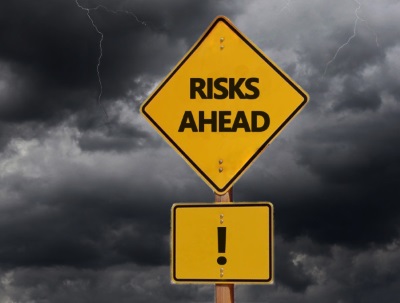Issue Management with Social Media Monitoring

- Issue management aims at recognising critical issues as early as possible to prevent them from influencing the public opinion about a company.
- Due to social media and virality, information spreads at high speed, which makes issue management more relevant than ever.
- Social media monitoring makes it possible to identify relevant issues early on and to take action if needed.
ISSUE MANAGEMENT AS AN EARLY WARNING SYSTEM
Palm oil, emissions or exploding mobile phone batteries: Companies are rocked by crises and scandals time and again. These scandals hurt the companies‘ public reputation and lead to irreversible damage, be it financially or at the core of any company’s assets: their stakeholders‘ trust. Several PR strategies help reducing damage and regaining public trust. Ideally, however, a crisis should be prevented from the start. If a topic did not cause a stir, the strategy worked out – that’s the gist of issue management.
WHAT EXACTLY IS ISSUE MANAGEMENT?
Here, the term ‘issue’ denotes a potentially negative topic that might damage a company’s or organisation’s image or success. The topic either emerges through internal channels or is brought forward by external stakeholders. Its distribution occurs publicly, mostly in mass media. Consequently, issues either precede crises or emerge from pre-existing crises and lead to long-term damage to a company or an organisation.
Issue management therefore aims at deliberately, proactively influencing these potentially negative topics before they can reach the general public and cause reputational damage. This is not achieved through a closed, linear process, but through a perpetual cycle of monitoring, identification and analysis of relevant topics, development of a strategy and the implementation of necessary actions, the development and reach of which should be monitored further.
- Monitoring: Before a company can deal with an issue, it has to become aware of it. Monitoring makes it possible to filter relevant topics that might end up becoming issues from the bulk of information circulating in mass media and social media. This is not just limited to topics that directly concern the company itself. Changes in the law, political change, societal trends and issues concerning competitors should ideally be taken into consideration as well.
- Identification: A company cannot deal with every single arising topic. Monitoring provides a selection of relevant topics that might lead to reputational damage to a company or organisation, but the possible impact and the urgency of the topic in question also factor into its prioritisation.
- Analysis: The selected topics harbour risks and opportunities. Key is recognising those and implementing them in a way that will benefit the company’s reputation.
- Strategy: A stance concerning the issue should be selected in accordance with the company‘s strategic alignment.
- Measures: Different measures have to be taken depending on which stage the issue itself is in – meaning how far it has progressed in the public.
- Monitoring: The progress of the issue and the chosen strategy have to be monitored further. At the same time, new relevant topics arise.
EXTENDED MONITORING
As an early warning system, issue management serves as the means to seize, defuse or even transform emerging topics into measures that foster a company’s reputation – ideally before a topic has even reached the media’s agenda. Monitoring is a vital part at the start and the end of any issue management cycle and decisively contributes to its success. Of course, successful issue management, being part of public relations, is also possible concerning positively attributed topics which can then be spread profitably through a company’s own channels. Social media monitoring can thus also help to identify these positively perceived aspects and to strategically continue them to a fruitful end.
By the time an issue has reached the classic mass media and has come into a company’s focus, however, things might already be too late. Monitoring of classic mass media as a gateway of public opinion is therefore not necessarily sufficient to run a successful issue management campaign. In the days of social networks, ‘fake news’, fast-travelling news and countless online communities with discussions about innumerable topics, it’s more important than ever to keep a close eye on social media. User-generated content spreads at high-speed due to the virality of social networks, regardless of whether or not the alleged news is true or not. The anonymity of the web especially tempts users to spread information unfiltered and without a second thought.
According to the Reuters Institute Digital News Survey 2016, 30.5 per cent of Germans use social media as a news source. Internationally this number amounts to 51.5 per cent. In accordance with this development that has turned social networks into news platforms, classic mass media outlets were forced to change their ways of working as well. News do not only make the headlines in next day’s morning papers any more. Instead, they are immediately spread through online channels. If companies only pay attention to classic mass media outlets or their own social media channels, they might only hear about an issue when it has already reached its peak and has therefore already caused damage.
IDENTIFYING ISSUES WITH THE HELP OF SPECIFIC TOOLS
Even if a company has become aware of a potential issue through its own channels, it is often not in possession of the necessary tools to gauge the extent of an issue, its reach or its scope. Tools like Google are unable to outline issues in the whole of their magnitude. Social media monitoring specialists use specially developed tools that make it possible to measure the scope of an issue and to develop a response strategy that takes the urgency of a topic as well as its repercussions into account. Professional monitoring also makes it possible to estimate the potential reach of posts in social media before they have even been distributed.
Additionally, the change in journalistic practices as well as the rising relevance of user generated content has made it elementary to keep track of the flow of news not only during working hours, but also in the evenings and during weekends. We recommend our blog entry on the topic of early warnings for further reading on this.
To prevent issue-induced dangers it is essential to monitor not only classic mass media, but also social media continuously. Only those who identify trends at an early stage are in the position to react accordingly and protect a company’s reputation. In addition, issue management helps to recognise opportunities for a company and to implement them strategically.
Are you also interested in actively participating in issues? Feel free to contact us!



